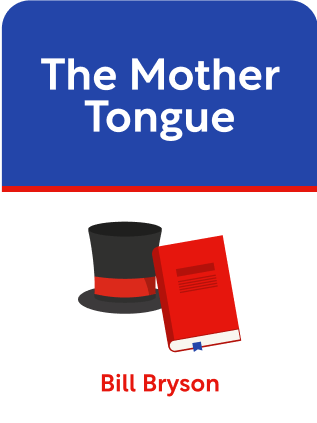

This article is an excerpt from the Shortform book guide to "The Mother Tongue" by Bill Bryson. Shortform has the world's best summaries and analyses of books you should be reading.
Like this article? Sign up for a free trial here .
What influence did the Scandinavian tribes exert on the English language? How did the importation of Scandinavian words change the English lexicon?
The Scandinavian invasions left a profound and lasting influence on the English language. The influx of Scandinavian words lent English more flexibility since they didn’t fully replace the existing words, but supplemented them, making it possible to express more nuance and subtlety of meaning.
Learn about the Scandinavian influence on the English language.
The Viking Legacy and Scandinavian Influences on the English Language
From the 8th to the 10th centuries CE, the British Isles suffered a new wave of invasion and settlement. The invaders were Vikings from what are now the Scandinavian countries of Norway, Sweden, and Denmark. Scholars are unclear as to why the Scandinavian invasions started when they did, but they left a profound and lasting influence on the English language. A political settlement with the Anglo-Saxon kings in the mid-9th century granted the Vikings a specified area in Northeastern England in which they could live and settle. This area was known as the Danelaw.
The linguistic stamp of the Danelaw can still be observed in England today, as the Viking invaders infused Old English with new loanwords taken from their Old Norse languages. Important words like husband, sky, and leg can be dated back to the Viking Age.
(Shortform note: Many modern place-names in England are Scandinavian. Place-names like Grimsby, Derby, and others that end in “-by” are usually Viking-derived).
The importation of Scandinavian words also made the Old English language more flexible, because these words often supplemented words that already existed in Old English instead of completely replacing them. This gave Old English a host of synonyms and doublets that allowed different words to be used to express slightly different ideas. Old English also absorbed syntax and grammatical structure from Old Norse, a testament to the language’s fluidity, even at this early stage in its development.
The Norman Conquest
In 1066, the Norman king William I conquered England and displaced the reigning Anglo-Saxon ruling elite. The Normans were people from Normandy, in Northern France, themselves descended from Viking ancestors.
Norman French, not English, was the language of the ruling elite in England for centuries after the Norman Conquest—after 1066, no English monarchs spoke English as their primary language until Henry IV’s coronation in 1399. The words imported into today’s English from Norman French distinctly show this social/linguistic split.
Largely left to its own devices, English developed organically during the Middle Ages. The ruling Anglo-Norman elite took little notice of developments in English, because it was the language of commoners.
This was the era when English developed many of its more recognizable features, like uninflected verbs with stable consonants. Such developments were to prove greatly advantageous to English as it spread throughout the world.

———End of Preview———
Like what you just read? Read the rest of the world's best book summary and analysis of Bill Bryson's "The Mother Tongue" at Shortform .
Here's what you'll find in our full The Mother Tongue summary :
- How English became a global language
- How the invention of the printing press led to standardization of written English
- Why English dictionaries are the most comprehensive found in any language






